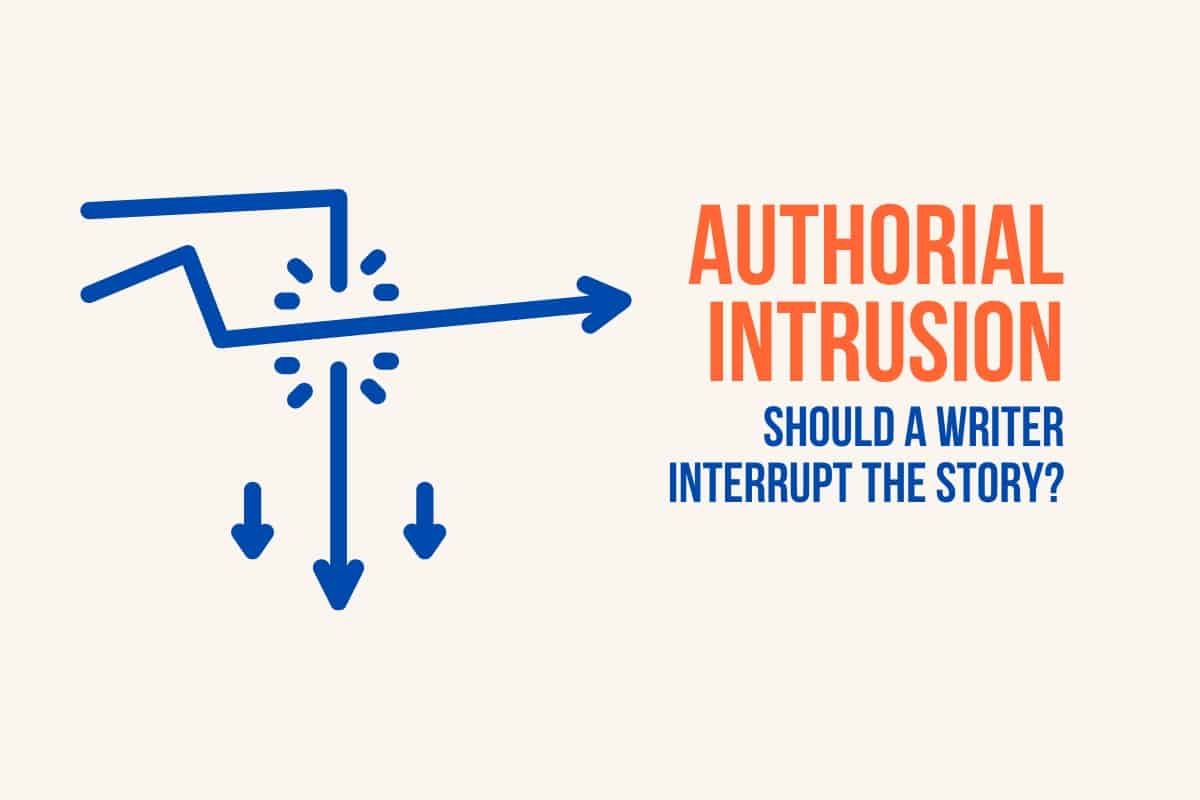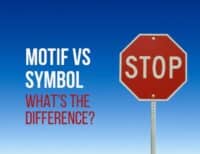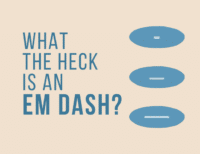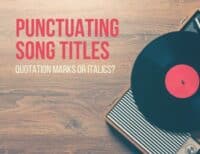When the writer addresses the reader directly, it's a literary device called authorial intrusion. But what does that mean and how can an author use it effectively in their fiction? Today let's take a look at when and how to intrude with your authorial voice.

I love The Princess Bride. I saw the movie before I knew there was a book. But once I realized there was a novel, I immediately checked it out from my high school library and devoured it. I'm due for another reading soon, I think.
The first time I read the book, I also read the introduction and footnotes from William Goldman. It took me forever to realize that S. Morganstern was not, in fact, a fiction writer of old from an ancient land who wrote a political satire relevant to his time. Nope. William Goldman made him up. All of Goldman's interjections and “editor's notes” in the book were completely fictional, and meant to be part of the reading experience.
When an author takes an aside to address the reader, it's called an authorial intrusion.
What Does Authorial Intrusion Mean?
This technique establishes a relationship between the author and the reader where the author is now an active character in the story's narrative.
It can be used in theater or poetry as well, anywhere the writer's voice interrupts the forms to comment on what's happening. (Hence the word intrude which means to put oneself in a place uninvited or unwanted).
The word intrusion has a negative connotation because it suggests the author's voice doesn't belong in the scene. If you use it, make sure you have a clear reason why the voice is needed and how it will enhance the story.
Examples of Author Intrusion
William Goldman uses this technique in the novelization of The Princess Bride, and it adds to the humor of the story and the satirical nature of the fairy tale. Throughout the novel, you'll find asides marked off with parentheses, like this one in the exchange at Miracle Max's cottage:
Valerie was so proud. “Beautiful,” she said. She turned to Inigo then. “You sound so disappointed—what did you think a resurrection pill looked like?” “Not like a lump of clay the size of a golf ball,” Inigo answered.
(Me again, last time this chapter: no, that is not anachronistic either; there were golf balls in Scotland seven hundred years ago, and, not only that, remember Inigo had studied with MacPherson the Scot. As a matter of fact, everything Morgenstern wrote is historically accurate; read any decent book on Florinese history.)
“I usually give them a coating of chocolate at the last minute; it makes them look a lot better,” Valerie said.
Notice the section in parentheses jumps to a voice outside the story to comment on a detail in the story.
Other examples of the authorial intrusion in action appear in Ferris Bueller's Day Off, the Lemony Snicket books, and Charlotte Bronte's Jane Eyre. The technique isn't as common in contemporary fiction because it can be seen as lazy if not executed properly.
Authorial intrusion works best in satire or where the narrative voice is firmly tongue-in-cheek. But if handled well, authorial intrusion can work and entertain readers.
When can I use authorial intrusion?
There's not a one-size-fits-all answer here, but I'd suggest thinking about why you need it and what it adds to the story, poem, or play.
You don't want to use it to explain what is happening in a scene—that's like having to explain a joke—it ruins the effect.
Ultimately, the decision to use authorial intrusion will depend on what serves the story best. Writers should consider the tone, style, and genre of their work, as well as their target audience, before deciding whether or not to use this technique.
What do you think of authorial intrusions? Would you ever try it in your writing? Let us know in the comments.
PRACTICE
Take a practice you wrote recently or a piece you're currently working on and add authorial intrusions, introducing yourself and directly addressing the reader.
Practice intruding authorialy for fifteen minutes. When you're finished, post your practice in the Pro Practice workshop here. And if you post, be sure to leave feedback on a few posts by other writers.
Not a member yet? Check it out here.
Happy intruding!







Thanks Liz. You’ve forced me to prove that I should never try this. But here’s my attempt. I should have whipped up a comedy.
TJ Coolidge pressed his palms against his office window overlooking Wall Street. The crowd–more like the mob–twenty-seven stories below thrust fists and signs in the air. Most he couldn’t read from this height, but a few written in large block letters drew his attention. The cool glass met his forehead as he leaned in for closer inspection.
“Corporate lifeline,” he said, his breath fogging the tinted glass.
“What’s that?” Destiny Harper sat behind him. Her impatience was as measurable as the temperature in the room.
TJ tapped a finger on the glass. “That one says ‘Corporate Lifeline.’ Has a noose hanging from it.” He grunted. “Clever. We should hire him in marketing.”
Destiny crossed her legs. He didn’t need to see her. The sound had caused him to lose concentration in more than a few meetings. “We don’t have a marketing,TJ. Or a sales. Barely a management.”
He shrugged and leaned back from the window. Even Destiny’s second hand reflection would cause most men to forget their mother’s name. Even the haunting grey-blue eyes froze him where he stood.
“We could go to jail, Teej.” She uncrossed her legs. It was the first time he’d ever seen her anything less than under complete control. “The feds are on a witch hunt. They don’t need evidence, just bodies.”
If I may intrude for a moment…oh, this is Ron, your humble author. I know, breaking into a story is out of fashion. But I feel the need to explain the behavior of my friends here. TJ and Destiny aren’t criminals, per se. They’ve just found themselves caught up in the unpleasant consequences of the misdealings and greed that come about when power and wealth merge. Please, don’t judge them. I’ve gone on enough…oh, yes, it was a pleasure meeting you. Now, let’s get back to the story shall we?
TJ continued his vigil over the protestors below. Gone were the tourists. With them the street vendors. The homeless, the poor, the desperate, however, were always in good supply. Even as he watched, a raggedly dressed man huddled in the door of the building across from his. His loyalties lied neither with the protestors or the business men walking past. He would, no doubt, give allegiance to any man with a spare dollar.
Excuse the formatting. I have more trouble with my iPad when posting to a blog…
Given that the vast majority of what I write is comedy (or, just laughable), I am probably guilty of overusing authorial intrusion. Here’s something spur of the moment… it’ll probably be terrible as it’s 6am and I’ve literally been up all night.
——–
Maggie was nervous about her blind date.
Partially it was because being taken out to dinner by someone you’ve barely met is a nerve-racking experience in and of itself and partially because she had previously had a terrible experience involving a date who was literally blind – he’s been a nice enough person, but kept walking into things and knocking them over, and she found it very difficult to gaze meaningfully into someone’s eyes when she was first having to instruct that someone on which direction to face while doing so.
When the doorbell chimed, she answered and was immediately relieved to see that her date was not carrying a white cane, and in fact his chiselled features and olive skin made him seem quite attractive.
“I’m Antony,” He said and produced for her a bouquet of red roses.
“My god… you’re too good for me!” Exclaimed Maggie.
And she was right. He WAS too good for her. Suddenly she looked again and he was an overweight 14 year old covered in zits.
It’s annoying when a character changes the author’s mind like that, but, well, you reap what you sow and all that.
Maggie looked to the sky. “Who did this? Who is controlling events in my life? First the blind guy, now this? Whoever you are, you are sick!”
Oh Maggie, you don’t the hand that feeds, my dear. I’m just a narrator… but now you’ve annoyed me and look what’s happened–
“OH GOD YOU TURNED HIM INTO A PIE WITH SOME GOOGLY EYES GLUED ON!” Maggie wailed.
(Personally folks, I thought the googly eyes were a bit of fun but there was some debate amongst myself and the other voices in my head regarding this,)
But despite everything, Maggie still enjoyed her blind date with Antony, even though he was just a pie with some googly eyes glued on, and the two would have even got married had it not been for certain archaic laws preventing humans from marrying pies.
—
Afterword:
Yep, that was even worse than I thought it would be. Sorry about that. I’ve had too much sugar and too little sleep.
This sounds like a very complicated literary technique. I don’t think I would (or could) ever use it.
Authorial intrusion! Yikes! My work-in-progress is one colossal intrusion. I hope it reads as absurd as I intend. I’ve written myself into the role of a writer heading up the Congo River to relive Joseph Conrad’s Heart of Darkness. Here’s a sample:
As a fictional protagonist I’m obliged to travel with my feet on the ground, or, in the case of the Congo River, with my keel deep in the current until, on the threshold of the heart of darkness, that keel grudges to a halt on some mud bank. To be honest, beyond that jumping off point, my imagination runs out. But, hey, that’s water not yet under the bridge. I’m only now boarding the steamer SS Zorba. There I am! The one carrying a copy of Joseph Conrad’s Heart of Darkness. Look at the hand that holds it, the back of my left hand—is that a tattoo? It looks like teeth. The mouth of a big cat. Look, I’m sweating and it’s only seven in the morning.
“Welcome Aboard.”
Who’s this? How gracious of her to take my hand to save my stumbling off the gangplank. Not the captain, I presume, I hope! I want a helmsman with a face tortured with furrows born of cruel experience on this impossible river. So, who is she,then? I do not recall inviting pilgrims on this cruise. Could she be a traveling companion? Is she a figment of my wishful thinking?
“Have we met…?” I ask.
“Silly bird!”
Me, a silly bird?
“Of course you are,” she says. “I’m your writer.”
I can imagine using it in the right story. A little snark, a little tongue-in-cheek, a little humor. Yep, I love it when it’s done well.
Very interesting! If done right and done for the right reasons I love this kind of thing. It can deepen themes and establish a subtle paradigm shift. I’m sure when it is done out of fear (of the story being ‘misinterpreted’) and a desire to control the readers experience, it can be a little more invasive. Thanks for bringing this to our attention. I’ve never considered it before.
Another intriguing topic. I love authorial intrusion, and think it’s not so much “complex” as subtle. It need not be artificial, but can be quite natural. After all, writer and reader both know this is a mutual illusion. So let’s admit it once in a while, in passing. When you think about it, even an innocent dash could be an intrusion of lesser degree, as in Ron Estrada’s piece: “The crowd–more like the mob–twenty-seven stories below…”
As fate would have it, a friend sent me the following essay this morning, highly apropos of “authorial intrusion.” A fun read, over the top yet seamless. Check it out and see what you think: http://junkee.com/an-opinion-piece-on-a-controversial-topic/23161
Sorry, can’t resist chiming in again on this one – evidently my favorite topic. There’s an excellent survey of this whole genre at Wikipedia under the name “Metafiction.” Lots of examples to check out… yes, even Stephen King. 😉
http://en.wikipedia.org/wiki/Metafiction
Personally, I find that authorial intrusion works better in movies (Princess Bride, Ferris Bueller) or a similar style on stage and in movies known as “breaking the 4th wall” (Shirley Valentine, Fiddler on the Roof) and each of them favorite movies and/or plays of mine– than it does in books. Anything that takes me out of the immediate scene in a book–whether it’s obtuse vocabulary choices, authorial “asides”, etc just don’t work for me. I think it was the fourth book of Douglas Adam’s Hitchhiker books (Fish somethingorother?) that used this technique quite a bit and I could barely get through it. Just another opinion…. =)
I like authorial intrusions as a reader, and the lack thereof makes fiction unreadable for me; ergo, I use them deliberately and religiously in my own stories, regardless of any critique whatsoever. Don’t like it–dont’t read it.